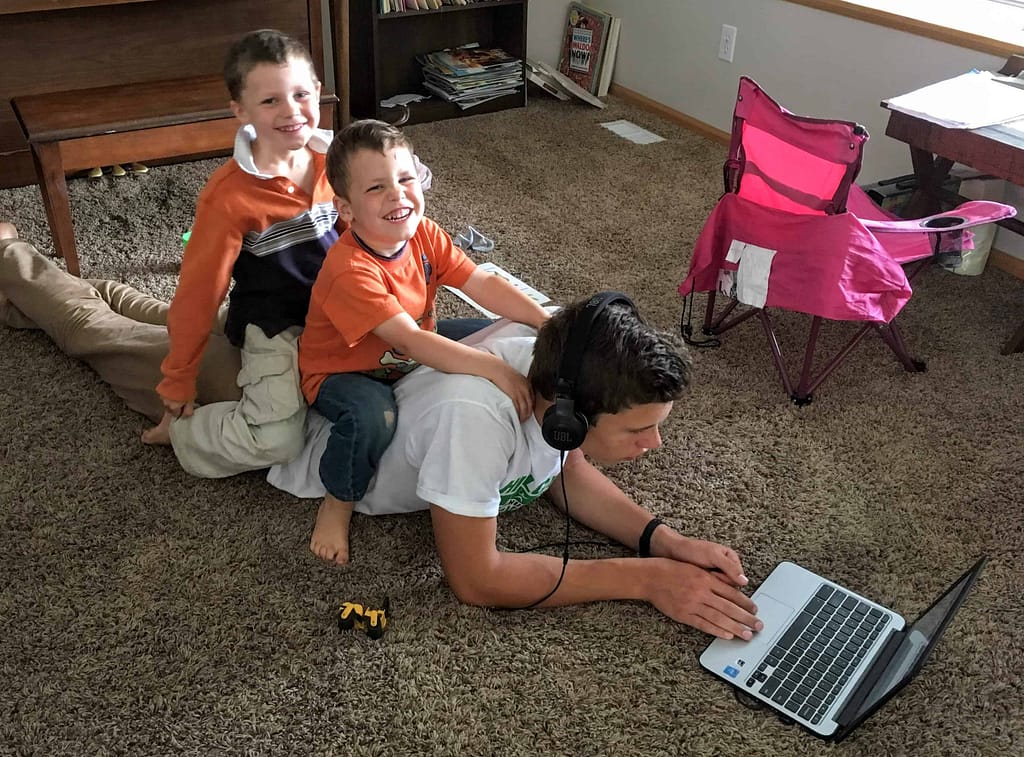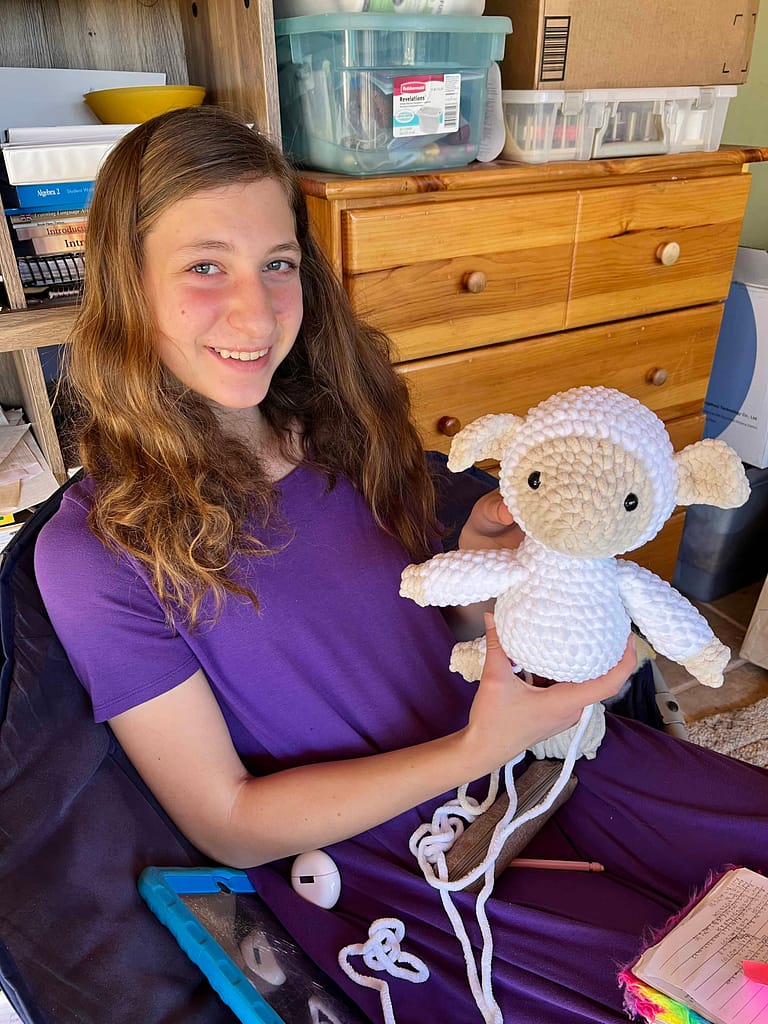This is a question I get a lot!! Do I allow screens and how do I manage them? Here are some tips I’d love to pass along!
Ten Tips for Managing Screen Time in Children
- Have 1-2 devices for all the kids to share.
- Have a box to keep them in (out of sight if needed.)
- Kids ask when they want to use one unless it’s homeschool time and they need it to complete an assignment.
- No screens before lunch (unless you’re homeschooling). Don’t have the TV on, don’t let toddlers or preschoolers use devices, don’t let older kids use them during summer and weekends. There’s no way they can be bored before lunch time. They can clean their room/playroom/bathroom, play outside, practice an instrument (even a recorder or simple instrument), do a puzzle, play a board game, do an art project, put on a puppet show, etc. There is so much to do in the morning while kids have a lot of creative energy. Wait until after lunch for screen time.
- Have kids do “Clappers” before screen time, especially in the summer. Or make up your own mnemonic. Or if nothing else, make sure their room is clean, they’ve done a chore (swept the porch, fed the dog, cleaned the toilet), played outside, and read a book before getting screen time.
- Screen use only allowed in the family room area (kitchen, great room, living room, etc.) No bathrooms or bedrooms.
- Listen to 1000 Hours Outside Podcast frequently with your kids. The fantastic episodes talk about kids playing outside, having a screen free childhood, letting your kids take risks, encouraging creativity, eating real foods, building strong family memories, and talk about the dangers of high screen usage.
- Talk openly about the dangers of screen time. (What you heard on 1KHO or books you read.)
- Encourage kids to play outside 3-4x as much as being on screens. So for every 3-4 hours of playing outside, they get 1 hour of screen time.
- Teach your kids that we strive to be mostly producers, not consumers. We grow some of our own food (rather than eating processed food), cook our own dinners (rather than eating out), fix things that are broken (rather than just buy new stuff all the time), actively work on hobbies and interests (rather than just watch others on TV use their gifts and hobbies) and produce our own fun. We don’t go around seeking to be entertained and fed all day by the work others are doing. We reserve entertainment like movie theaters and arcades for special occasions.

Good Screen Time Rules for Children
- I do “Clappers” before screen time, especially in the summer.
- I ask before using a device.
- I only use screens in the family room area.
- I play outside at least 3 times as much as I am on electronics.
- I don’t watch or play anything that makes me uncomfortable. I know to turn it off or show my parents.
- I turn it off when my parents say.
- I enjoy playing outside and am so creative, I can go several days without using a screen at all.
Ten Tips for Encouraging Kids to be Producers and not Consumers:
One of my favorite quotes from the movie, “Gifted Hands” is “Why you waste all that time watching TV? If you used that time to develop your God-given gifts, it wouldn’t be long before folks was watching you on TV!”

Here are some tips for encouraging kids to get off screens and be productive. We need more inventors, creators, and leaders in our country. Not ones who just watch things happen.
- For Christmas and birthday presents get them gifts that encourage hobbies. For example: yarn to crochet, juggling balls to juggle (instead of going to the circus), piano music, art supplies, bikes, Legos, Hula hoops, Pogo stick, Origami paper, balloons for balloon animals, puppets, woodworking tools, trampoline, and modeling clay.
- There is definitely a time for watching others like the Olympic games, Superbowl, going to a circus, etc. Keep it to a minimum, though, and let it inspire your children to go create their own. If they are used to watching basketball several nights a week they may not have time to play basketball themselves. Take them to one circus, sports game, gymnastics meet, or play and then let them go at it at home trying to do those things. Encourage them to put on their own circus, do gymnastics tricks on a trampoline or tree (my kids use a small branch as a gymnastics bar), and put on their own plays complete with costumes.
- Give your children large chunks of time to be producers: all afternoon after school and all day Saturdays. It takes up to 45 minutes to get into a game/activity so make sure they have 3-4 hours of uninterrupted time to figure out their circus: acts, program, props, music, etc.
- Compliment all their effort in putting on their circus or play. And compliment the actual talent too.
- Don’t jump in and solve all their problems. Let them figure things out themselves. That’s where the real learning happens.
- Model being a producer yourself. Stop scrolling social media. Create your own recipes instead of looking on Pinterest, make cards instead of buying cards to send to loved ones, play the piano instead of listening to music, etc. Being a producer is so satisfying! Give it a try!
- Aim for a ratio of 80/20 producing/consuming throughout your day.
- Learn a new skill that will serve your family and save you money. For example, cutting your children’s hair or changing the car oil.
- Regularly ask your child what he wants to learn more about: astronomy? weather? sewing? karate? Check out books from the library on these subjects. Find projects to do to bring them alive. Or simply let your child play “hurricane” in the tree house.
- Expose your child to free events where people are showing things they have made or accomplished. Like a poetry reading, quilt show, concert in the park, etc. Ask if he saw anything that inspired him.
You got this! Remember that for hundreds of years people raised their children without electronics. Your kids will be fine– in fact they’ll be better off– with less screen time. You will be happier seeing them run around outside, play creatively, and develop new talents. They will be happier too!

